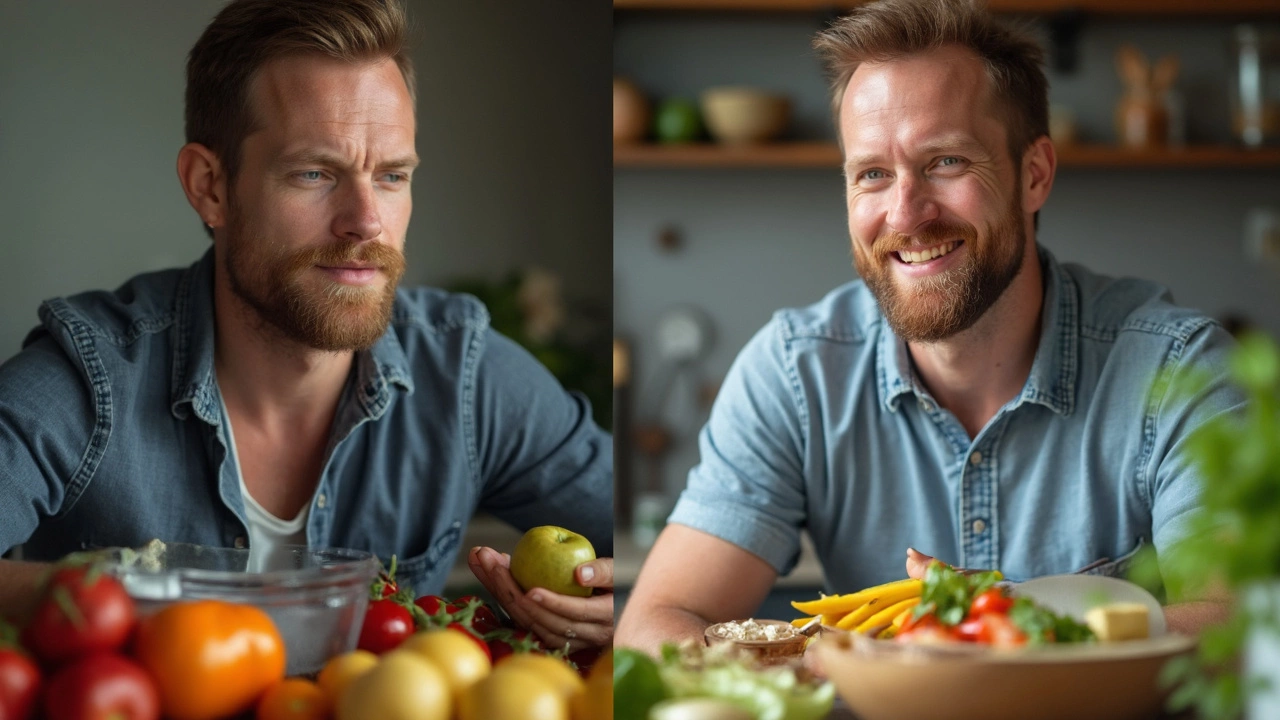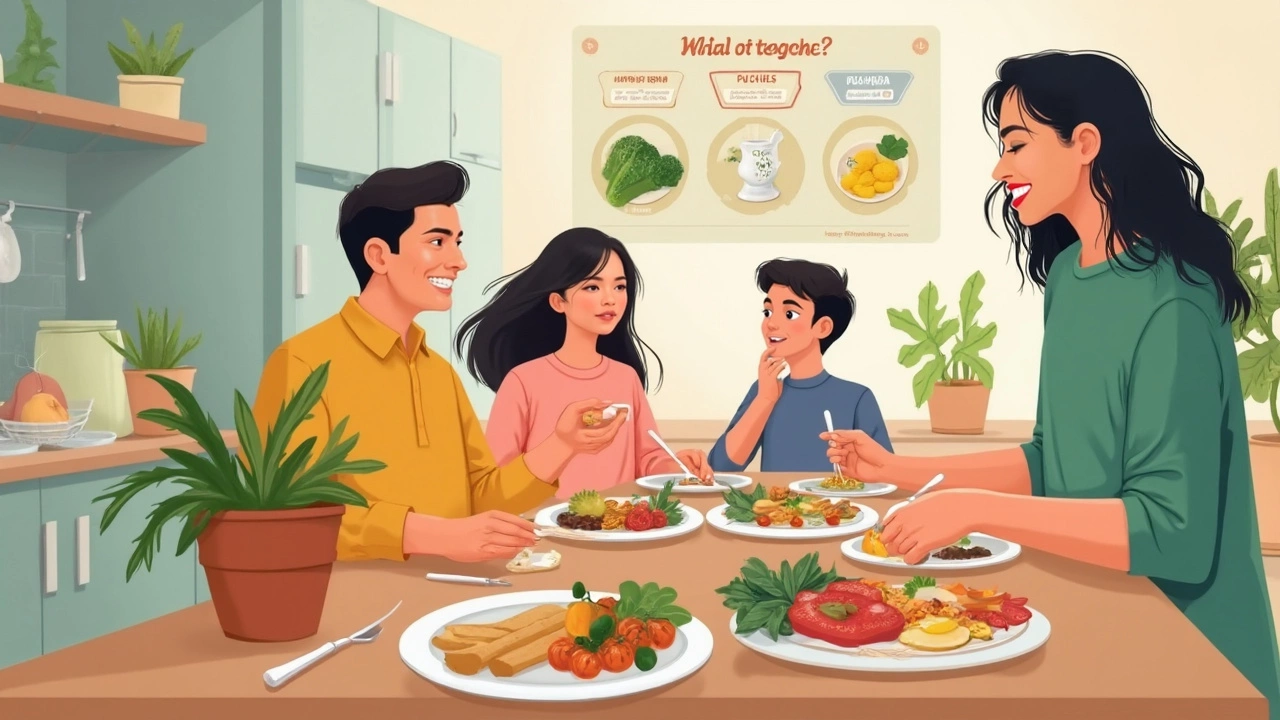Nobody likes to talk about what’s missing from their diet, especially if it’s something as wholeheartedly positive as a vegan lifestyle. Still, it’s a question that’s whispered at family dinners and shouted on internet forums: what do vegans lack most? Strip away the myths and the finger-pointing, you’re left with a surprising but practical reality—most vegans do miss out on a few really important nutrients. These aren’t trivial gaps, either; when they’re ignored, they can drain your energy, mess with your moods, and make your healthy choices backfire.
The Big Ones: Which Nutrients Slip Through the Cracks?
There’s a short list of nutrients that pretty much every study flags as the usual suspects: vitamin B12, iron, omega-3 fatty acids, calcium, zinc, and vitamin D. Notice a trend? Nearly all of those are found in abundance in animal products, but not so much in plants.
Let me break it down: Vitamin B12 is the all-star here—it doesn’t show up in plants, period. If you don’t eat animal products, you’ve got no natural B12 coming in. That’s why you’ll see B12 deficiency topping every “vegan risk” chart. Iron’s next, and though plants have plenty, it’s the less-absorbable kind (non-heme), which your body grabs at about half the rate it does from steak or chicken. Omega-3s are tricky, too. Sure, flaxseeds, walnuts, and chia pack ALA (that’s a type), but your body has an awkwardly bad conversion rate to EPA and DHA—the types found in fish, and the ones you actually need for brain health. Calcium and vitamin D? Dairy-free folks dodge a major calcium source (milk) and rely on sunlight, which, let’s face it, doesn’t always do the trick, especially in northern climates. And zinc almost always slides under the radar. It plays a sneaky but vital role in immunity and healing, but it’s tied up with plant compounds called phytates, which make it hard for your body to grab zinc from plant foods. With all this, it’s not shocking that studies keep finding deficiencies among vegans.
What Does Missing Out Actually Look Like? Everyday Impacts
If you picture nutritional deficiencies showing up as some rare Victorian illness, forget it. For vegans, the signs are usually way more normal—and easy to miss. Tired all the time? Vitamin B12 and iron are key for making red blood cells. Weakness, brain fog, memory slips, or trouble focusing? These might be the first clues that you’re not getting enough omega-3s or B12. If you get sick constantly or cuts seem to heal at a snail’s pace, zinc could be the culprit. Brittle nails and muscle cramps sometimes signal low calcium, especially if you’re active. The creepiest part is that some of these deficiencies—like B12—can go undetected for years because your body stores it and only tips you off once levels dip dangerously low.
Here’s a real-world bit: Two winters ago, my wife Emily went vegan for a few months. She’s usually full of energy, but by February she noticed feeling tired, foggy, and could barely finish her runs. The culprit? Low iron and not enough B12. Plant-based, yeah, but not fortified or supplemented. A lot of folks assume plants have them covered, but unless you’re eating fortified foods or taking certain supplements, you’re rolling the dice. Getting a blood test was the only thing that confirmed what was going on. This isn’t unique—think of how many people walk around with subtle symptoms, never connecting them to their diet.

How Do Smart Vegans Prevent and Fix Deficiencies?
Vegans who do it right know that cutting out meat and dairy isn’t a "set it and forget it" move. Instead, it’s all about making sure each missing piece gets replaced. Here’s how to get sci-fi-level strategic about plugging those gaps:
- B12: Skip the guesswork. You can’t count on spirulina or miso—that’s quack science. The only real answer is a supplement or eating foods fortified with B12, like certain plant milks or nutritional yeast. Even the world’s top vegan doctors hammer this point home—no B12, no exceptions.
- Iron: Double down on beans, lentils, pumpkin seeds, and dark leafy greens. But here’s the trick—pair them with vitamin C-rich foods (like bell peppers or oranges). That boosts absorption big time. Still, if you’re a menstruating woman or distance runner, ask your doc about iron bloodwork.
- Omega-3s: Plant sources like chia, walnuts, and flaxseed are solid... but consider an algae-based EPA/DHA supplement if you want those brain-and-heart benefits you’d get from fish oil.
- Calcium: It’s not cheddar or bust. Use fortified plant milks, tofu made with calcium sulfate, broccoli, bok choy, and almonds. Don’t forget: spinach is a calcium faker—it’s high, but your body barely absorbs it.
- Vitamin D: If you don’t live in a sunny place—and most of us don’t, year-round—look for a vegan D3 supplement (most is made from lichen, not sheep’s wool these days), or grab fortified orange juice and cereals.
- Zinc: Beans, nuts, seeds, and whole grains are prime sources. Improve absorption with soaking and sprouting those foods (it actually makes a difference by lowering those pesky phytates).
If you want a once-a-day fix, many companies now make vegan multivitamins that check all these boxes. But be picky—some cheap brands skimp on the critical details.
Diet Diversity: The Secret Weapon Against Hidden Gaps
Some people get so laser-focused on junky vegan burgers or piles of pasta that they forget about variety. That’s a fast track to deficiency town. Diet diversity is your safety net—it’s what separates worn-out vegans from glowing ones. Eating heaps of different whole foods isn’t about being fancy. It’s about making the math work: spinach doesn’t cover everything, but spinach plus lentils, sweet potatoes, tahini, berries, tofu, and nuts covers way more bases. Aim to eat the rainbow, literally—each color brings a slightly different nutrient load.
Fermented foods are an underdog here. They don’t just help with digestion; fermented soy, like tempeh and miso, makes minerals like zinc more absorbable. Even sauerkraut and kimchi have their perks if they’re made the traditional way (not the pasteurized stuff). Don’t overlook seaweed, either. It can be a great dose of iodine, which isn’t technically a deficiency unique to vegans, but plant-based folks can miss it unless they eat iodized salt or regular nori.
Watch out for hidden traps, too. High amounts of tea and coffee with meals block iron absorption. And if you’re eating nothing but ultra-processed plant foods—think vegan ice cream and frozen nuggets—you’re practically asking for a mishap.

Practical Steps & Tips: Upgrading Your Vegan Diet
Instead of guessing and hoping for the best, get deliberate. Start by tracking what you eat for a week (apps like Cronometer are perfect for this). You’ll probably find some glaring gaps right away. Don’t be shy about getting bloodwork twice a year, at least B12, iron, and maybe vitamin D. Symptom-checking is fine, but those nutrients can run low long before you notice.
Make fortification your friend, not your enemy. Choose plant milks and meat substitutes that add calcium, B12, and sometimes vitamin D. Rotate your grains—try swapping wheat for quinoa, millet, or buckwheat here and there. Go for sprouted bread, which boosts mineral absorption. Snack on nuts and seeds daily, and switch up the kinds often. If you struggle with variety, toss handfuls of frozen broccoli and berries into whatever you’re cooking—it’s an easy cheat.
Supplements are life for some nutrients. If you’re skeptical about swallowing pills, gummy B12, vitamin D sprays, and algal omega-3 softgels make things stupidly simple. Have a reminder in your phone, or put your supplements by your toothbrush so you never forget. If you’re pregnant, nursing, or have health issues, run your nutrition plan by a plant-savvy dietitian—just don’t wing it. There’s no need to risk your health for the sake of pride.
Real talk: being vegan isn’t about chasing perfection. It’s about eating in a way that lines up with your values, but also keeps your mind and body firing on all cylinders. Staying healthy as a vegan takes a little homework and some smart swaps, but that’s a small price for being able to live this way for the long haul. The biggest deficiency? Not checking in. Make tweaks when you need to, stay aware, and enjoy every meal, knowing you’ve got all your bases covered.

